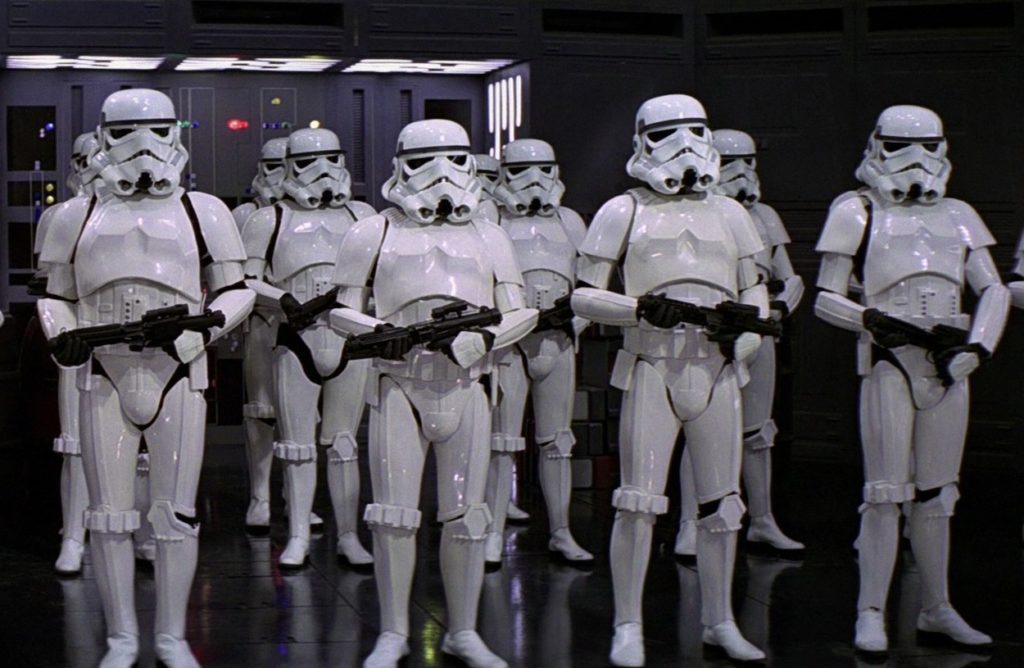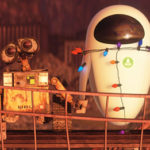The Military, Veterans, And Speculative Fiction
 Last week, here in the US, we celebrated Veterans Day. It’s kind of funny actually because it seems as if any holiday that has a particular national slant has become an occasion to honor veterans. For instance I saw a number of posts about veterans on Labor Day! Well, no, I wanted to say, this is the day we honor workers as opposed to bosses or people in service-oriented jobs. But that’s OK. I don’t think veterans can get enough recognition.
Last week, here in the US, we celebrated Veterans Day. It’s kind of funny actually because it seems as if any holiday that has a particular national slant has become an occasion to honor veterans. For instance I saw a number of posts about veterans on Labor Day! Well, no, I wanted to say, this is the day we honor workers as opposed to bosses or people in service-oriented jobs. But that’s OK. I don’t think veterans can get enough recognition.
At any rate, the real Veterans Day falls on November 11 every year and is an outgrowth of what was originally called Armistice Day. The holiday celebrated the peace treaty ending World War I, when it was still called The Great War. In 1938 that holiday became a national commemoration of veterans, not to be confused with Memorial Day celebrated in May which honors those who died in the service of their country.
Little did the people back in 1938 imagine how many wars were in our future or how many more people would serve in the military and become veterans.
In thinking about the military, I had to wonder about the place of armed forces in speculative stories. Perhaps most famous are the Storm Troopers of Star Wars, but other stories, particularly dystopian fantasy such as Hunger Games, include a strong military—as part of the side of evil. In contrast, those fighting injustice are usually less organized, more determined, a bit rag-tag, but extremely effective.
In the world of fantasy, the military represented in Lord Of The Rings is not so different. Sauron’s forces have a hierarchical structure, and they seem well-equipped and organized, though clearly not as uniform as the Storm Troopers of The Empire.
In contrast, those fighting Sauron were a loose coalition, uncertain who was the real leader or what their primary goal should be. They were clearly over matched until Aarogan and Frodo turned the tide.
I’m trying to think of stories that have the military on the side of good. Some, such as Jill Williamson’s Blood of Kings series, have two armed forces in conflict. Patrick Carr’s Staff and Sword series also depicted various armed forces colliding with one another. On the other hand, Paul Regnier’s Space Drifters series seems to align with the traditional “organized military is on the side of evil” format.
What other speculative stories depict military forces? Do both sides have trained and armed troops, or is one vastly superior in numbers and power, only to be confronted by a band of rebels who are out “gunned” and out manned, but who fight well in spite of the odds against them?
More appropriate to Veterans Day, do any speculative stories feature veterans? Or does the story end when the war is over?
Give us your best recommendations for books with one type of military or the other as a key component and any that feature veterans.







































Starship Troopers by Heinlein is probably the most famous story where the military is the savior of the entire human race against a vicious alien species. Though some aspects of that story have struck people as the military coming across as Fascist, this novel qualifies as a must-read on this topic.
Forever War by Haldeman is another story I read that heavily featured the military, this time definitely not in a heroic role overall. Shades of Vietnam were very visible in that novel. Definitely not a G-rated story, but it was thought-provoking.
A whole pile of military science fiction exists, either celebrating war like Heinlein or lamenting it like Haldeman. With shades in between. John Ringo, a prominent military sci fi author would be an example of that trend, as are the Man-Kzin War anthologies under the control of Larry Niven. There are many others, too.
Probably the most well-known film that heavily features the military science fiction sub-genre would be the James Cameron-directed “Aliens” in which he celebrated the military like Heinlein would have, while still showing them as fallible human beings. (He ironically took a much more critical approach in “Avatar,” in which the military is seen as mostly bad.) Though there have been others. The Battlestar Galactica reboot had strong elements of military sci fi, for example.
Military science fiction in which the military is good can be generally seen as fighting robots or merciless aliens or other forces where only discipline and courage will come to the rescue. Military sci fi is more critical when military forces are arrayed against good aliens or innocent civilians. Sometimes, like in Ender’s Game, whether the military was actually good or not remains an open question at the end of the story…though without a doubt, Ender Wiggin is one of science fiction’s most important veterans.
I have always thought that a fascinating compare-and-contrast essay lies between Starship Troopers and Forever War, especially as illustrations of post-WW2 and post-Vietnam attitudes.
That said, I also appreciated Karen Traviss’ Star Wars: Republic Commando novels as a very interesting view of war and soldiering from the ground level. Given that we Star Wars fans know that the entire war in which the commandos are operating is an artifact of secret manipulation by the future Emperor Palpatine (in addition to the various secret agendas within the novels themselves), the stories carry extra poignancy in the current day, where the motives and goals of wars are often hotly debated and muddied by inconsistent, incomplete and meddlesome policy-makers who often hold the well-being of individual soldiers in low esteem.
I haven’t read Karen Travis. Sounds like it might be interesting, though I must confess the extended Star Wars universe has had limited appeal to me, since it is really under the genre of space opera, which I enjoy at times. But I’ve always preferred more technically correct sci fi…
I should just post your comment for today’s article, Travis. This is an excellent look at the military in science fiction. I should have thought of Avatar. Yes, definitely a negative view of the US fighting force, at least. It does make sense that when cultures first come into contact, there might be some conflict and thus, war, so it isn’t surprising that there are a lot of such stories in science fiction that depicts space travel.
Thanks for this overview, Travis.
Becky
I wouldn’t say that Rohan was a rag-tag group. Same goes for the elves, but I think the way LotR was filmed makes it seem like they’re less organized because they’re not pictured standing in huge rows Nazi style. (Come to think of it, I rarely see pictures of American troops standing in order like orcs or stormtroopers.)
Many fantasy and sci-fi worlds are luckier than ours. They haven’t had never-ending wars to create a large group of veterans. The one exception I can think of for film would be Star Wars. Obi-Wan certainly qualifies as a veteran. Star Wars Rebels also had three clones from The Clone Wars who were veterans, as well as Ahsoka.
There’s also Firefly. Mal and Zoe were veterans.
For books, I mostly read YA, so there tend to be very few veterans when you’re dealing with a cast of teenagers, though the Drowned Cities did have Tool, a mutant super soldier.
My own stories do have some veterans because it’s set about twenty years after a war. In an apocalyptic story, I wrote my MC’s grandfather as a German WWII vet, which is quickly becoming outdated due to that generation of vets dying off.
Jessi, I guess I think of Rohan as not tightly organized because of Wormtongue’s influence, and therefore a lack of cohesive policy and even deployment of troops. Gondor was more structured, I think, but still, given the nature of their position, they employed secret missions and had secret hideouts, tactics usually associated with the underdog, with a group of rebels more than with the legitimate government defending or rescuing others.
Good observation that a lack of veterans means a lack of previous wars!
And yes, YA books would not be as likely to feature veterans.
I like the fact that you introduced some veterans in your writing. Even though the generation of WWII vets is dying,. I think your story can still be enjoyed. I think of all the other books—like The Lion, The Witch, And The Wardrobe, that make reference to a past event. It hasn’t spoiled the stories at all, I don’t think.
Becky
The most famous speculative fiction military would be Starfleet. While not militaristic in action, Starfleet is an armed forces organization, comparable to the modern Navy. Creator Gene Roddenberry based the series lead, Captain James T. Kirk on Horation Hornblower–himself a literary figure from the series by C.S. Forester.
The only thing about Starfleet—though it certainly operated as a military organization, they kept insisting that they were explorers. Kind of interesting as I think about it. Part of Roddenberry’s worldview, I guess. He believed that war and commerce and pretty much all things bad would simply become archaic and people would stop making war and being greedy. Only those cultures that were not as fully evolved was there still the need to do battle. Well . . . if humankind didn’t have a sin nature, maybe. But alas, it just ain’t so.
Thanks for including a bit of the backstory of James Kirk. I didn’t know what his character was inspired by.
Becky
David Weber’s Honor Harrington books have a lot of military-based stories, mostly space naval military.
Most of the Warhammer 40k stories have some form of military combat in them.
I think Halo also has a lot of military elements.